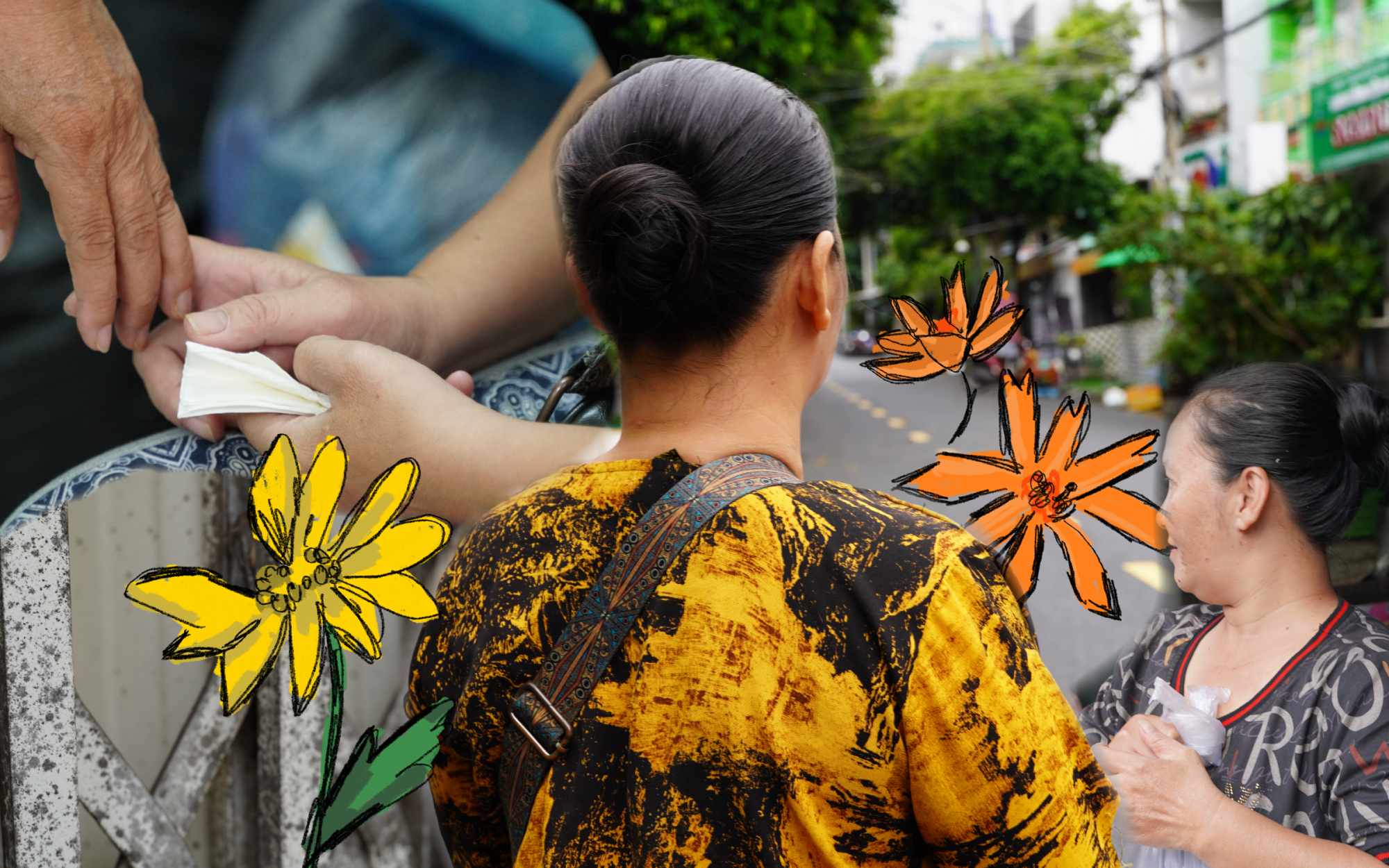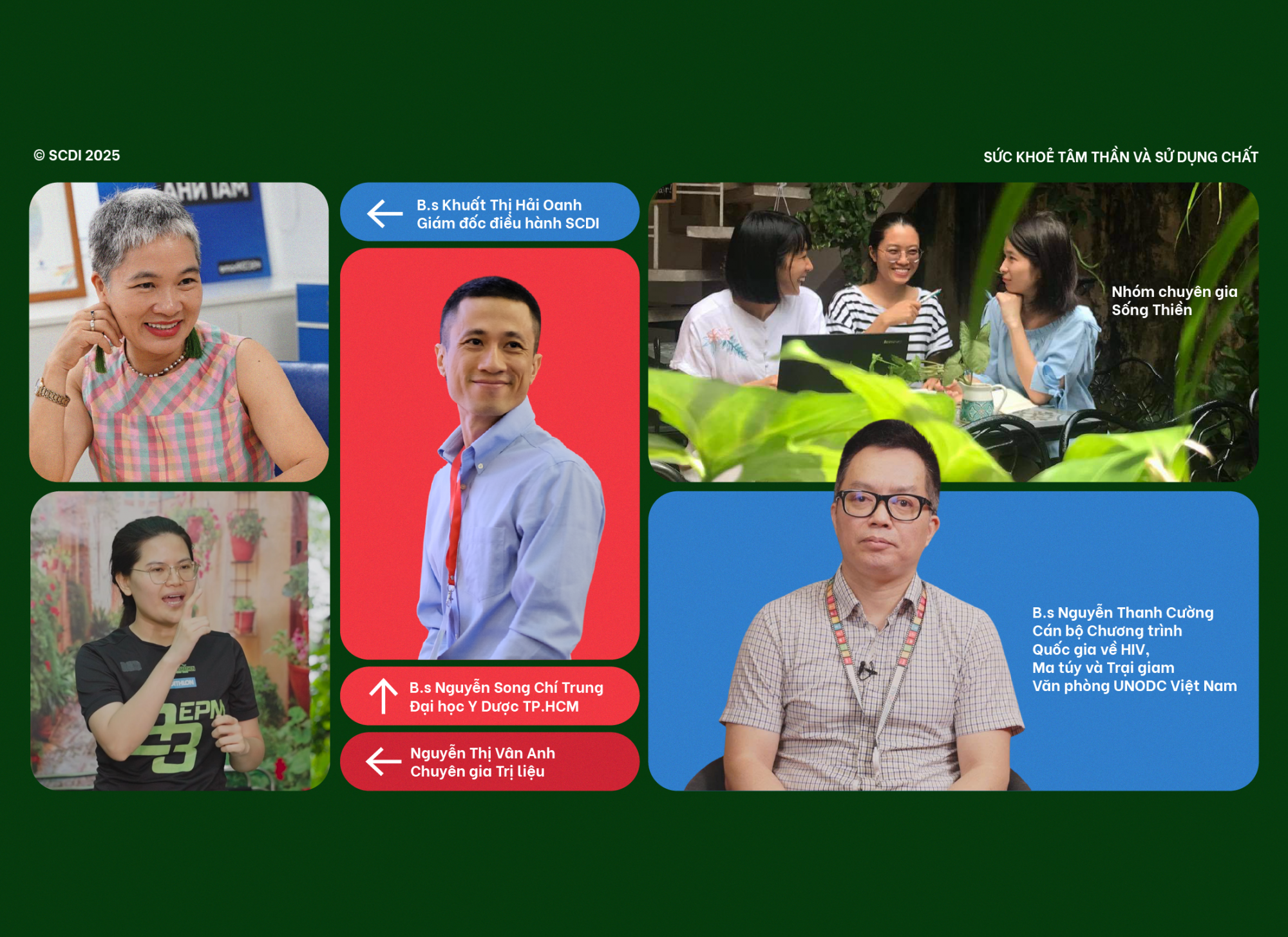The Seed Sowers
From Saving the Future to Building Up is a journey carried forward. Each stage comes with challenges, yet marks steady and enduring progress in health care, in improving quality of life, and in opening recovery opportunities for young people who use substances in Vietnam.
Walking alongside this journey are outreach workers - community members full of enthusiasm, dedication, and perseverance. In the past, they were the ones who Saving the Future; now, on this continuing path, they have become the ones who plant seeds, cultivating many futures ahead.
Walking alongside this journey are outreach workers - community members full of enthusiasm, dedication, and perseverance. In the past, they were the ones who Saving the Future; now, on this continuing path, they have become the ones who plant seeds, cultivating many futures ahead.
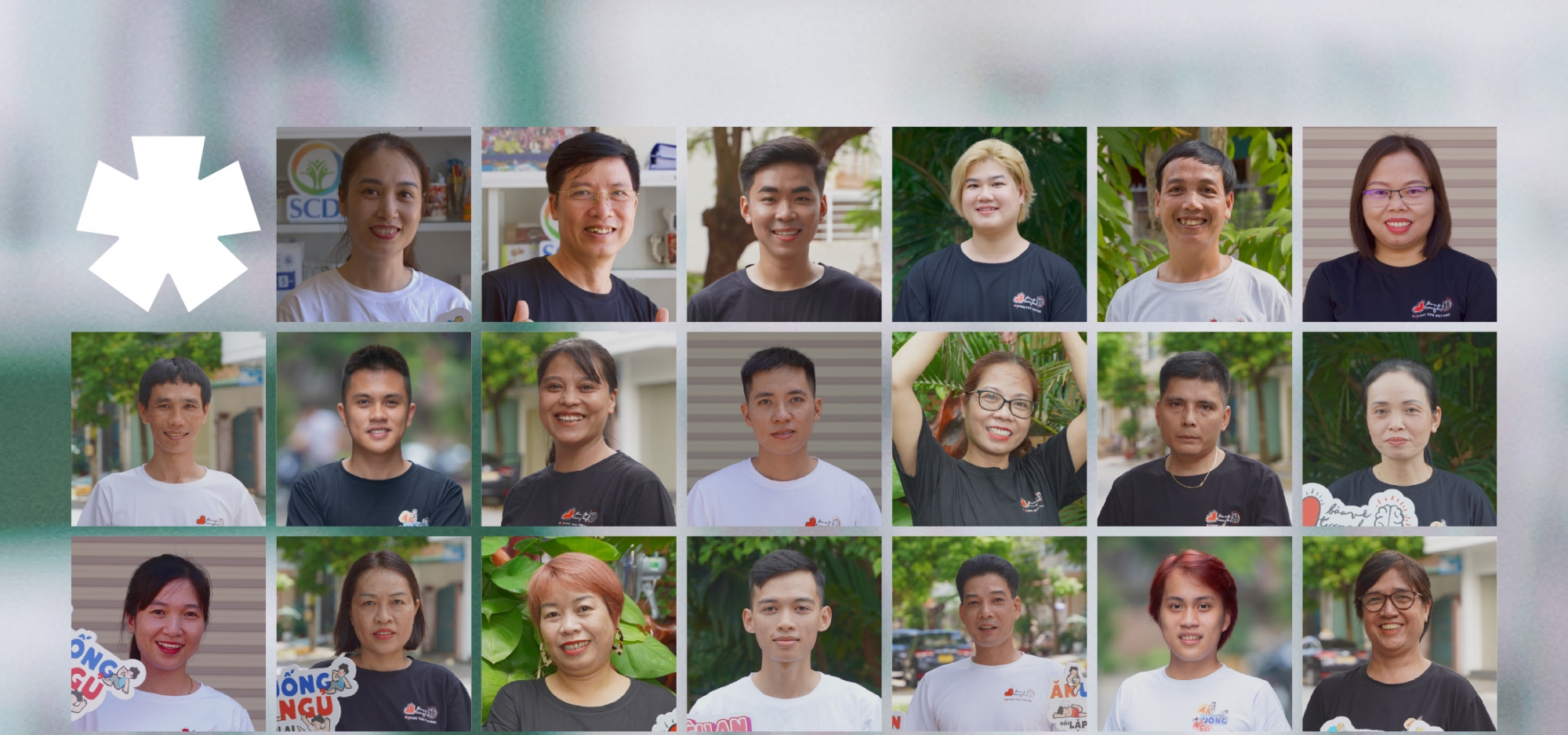
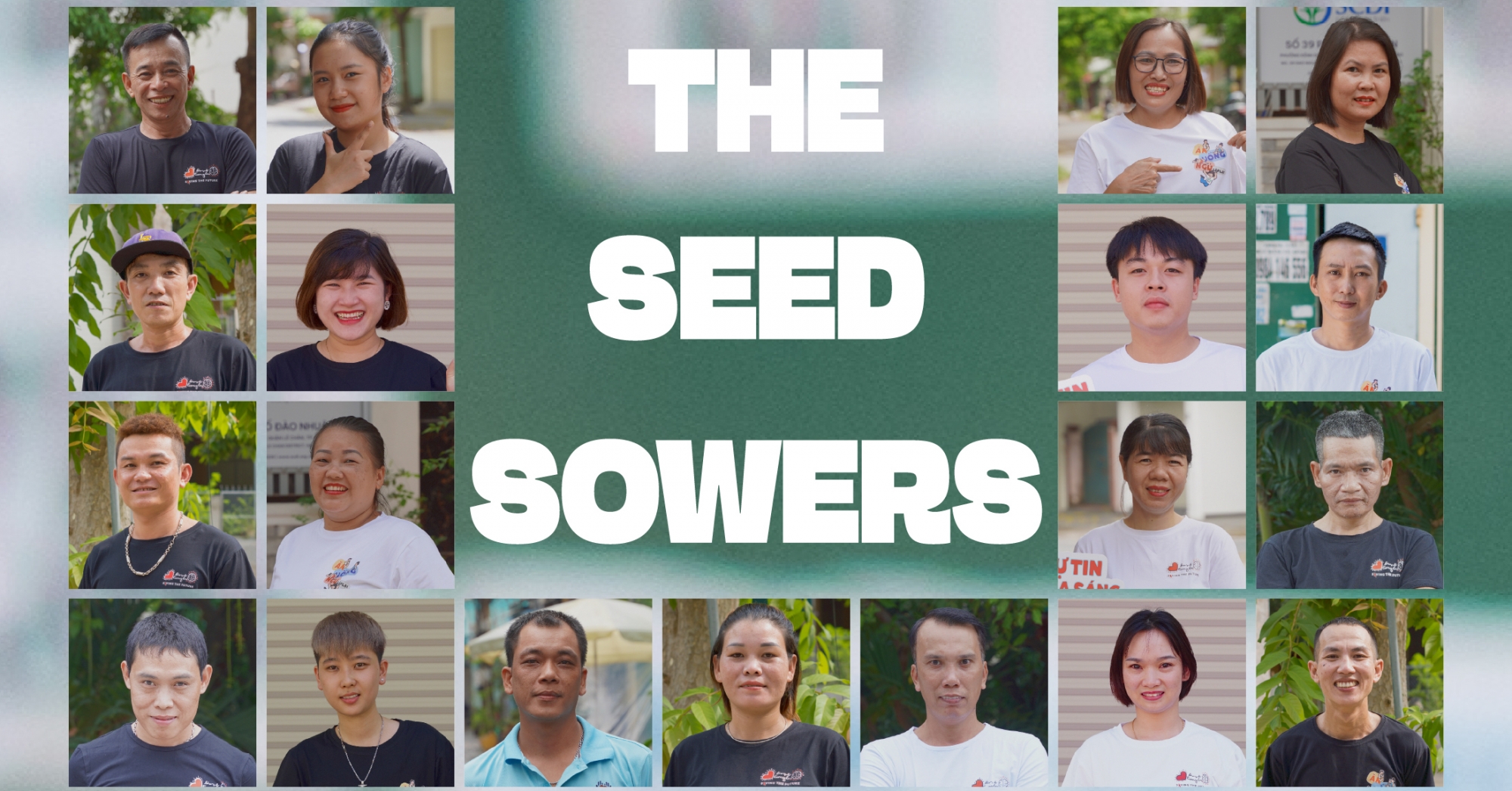
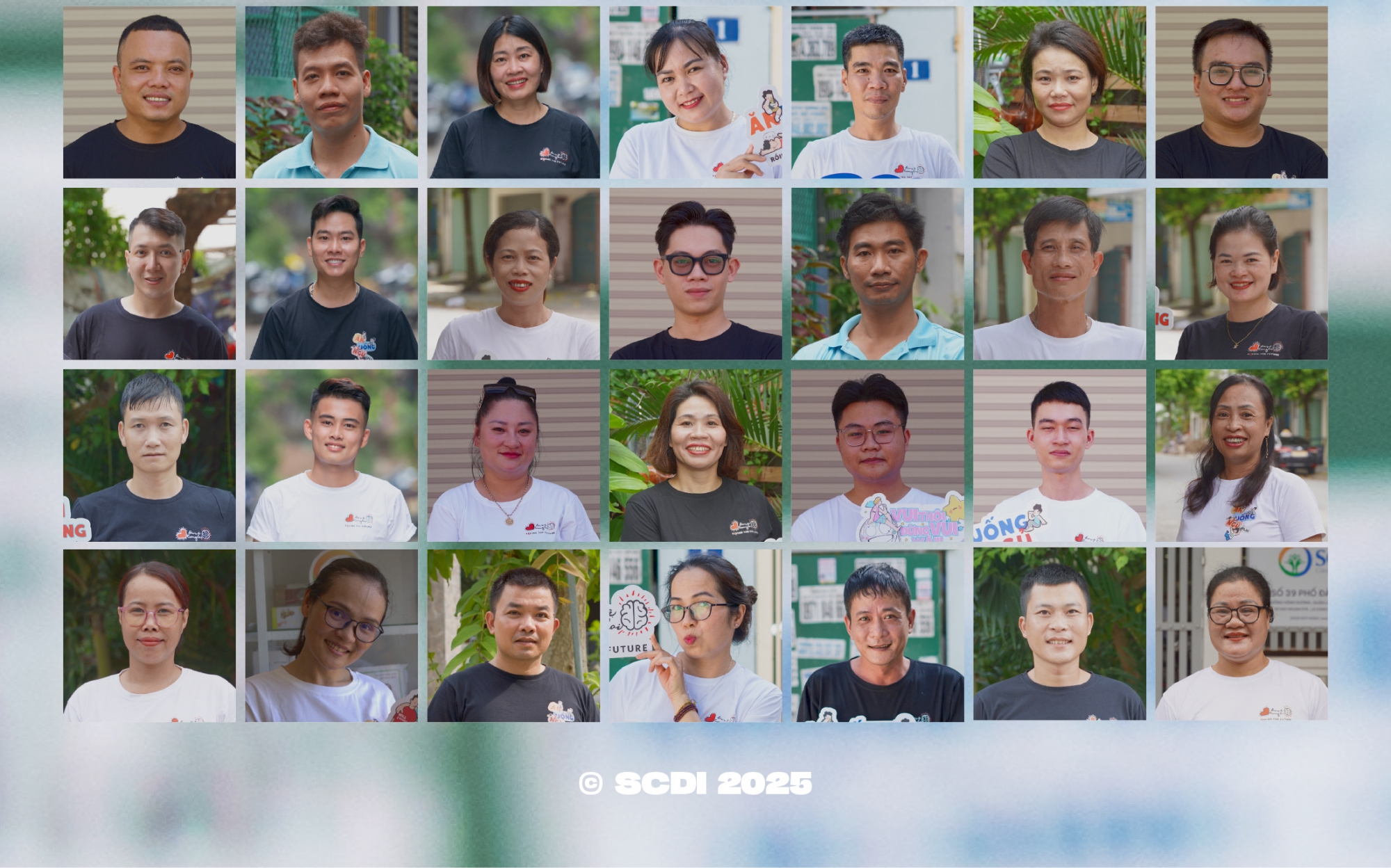
Challenging start
In Building Up, most of the 73 outreach workers had already been involved in Saving the Future since the earlier phase. Yet, even the most experienced among them faced difficulties when shifting toward interventions centered on mental health care.
I’ve been with the project since the very beginning, but once we delved into mental health, it truly became a challenge
Mental wounds often occur in silence; unlike cuts on the skin, they don’t burn with pain or make us fall ill right away. Instead, they linger quietly over the years, often unnoticed even by the person carrying them. It was only through the project that many young people first encountered the concept of mental health, gradually realizing that their fatigue and deadlocks also need to be listened to and healed.
Getting clients, especially young people, to open up about their struggles has never been easy. Mental health is not only unfamiliar to many but also carries a double stigma: substance use on one side, and mental health problems on the other. Do Quoc Tuan, a member of the My Hands group in Ho Chi Minh City, shared that the greatest challenge was not counseling techniques, but building trust.
Getting clients, especially young people, to open up about their struggles has never been easy. Mental health is not only unfamiliar to many but also carries a double stigma: substance use on one side, and mental health problems on the other. Do Quoc Tuan, a member of the My Hands group in Ho Chi Minh City, shared that the greatest challenge was not counseling techniques, but building trust.
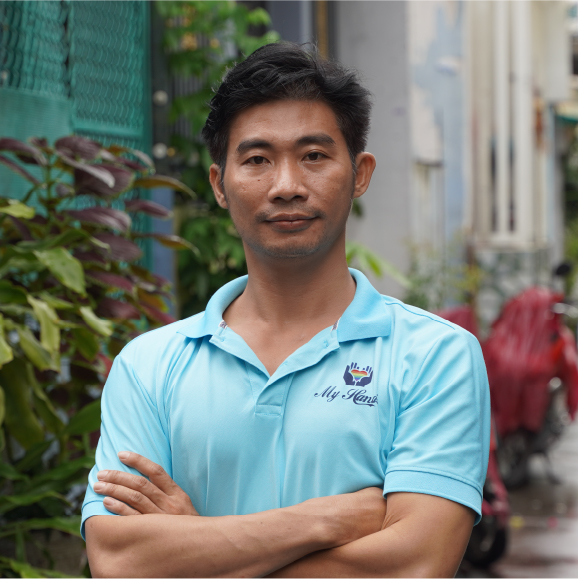
“Mental health issues are complex, and people don’t just share them overnight. The stigma around the very words mental health makes it hard for most people to accept. Many clients don’t believe they have a mental health problem at all. They carry the prejudice that seeking help means they’re ‘crazy’ or ‘broken,’ so the moment it’s mentioned, they dismiss it immediately.”
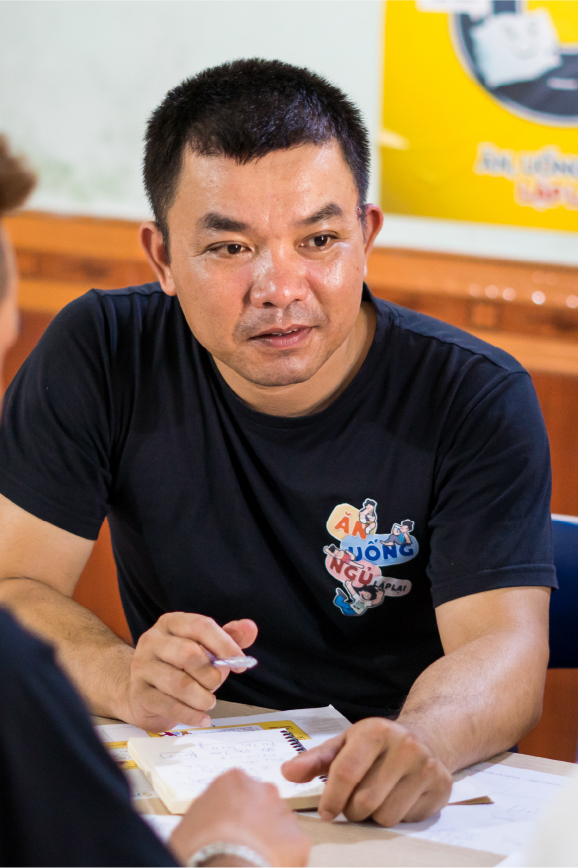
Lang Chung Hien, an outreach worker in Que Phong, Nghe An, who has been working with the community for more than four years, shared: “Even though I’ve taken part in many projects and gained quite a lot of experience, when it came to mental health care, I still found it… difficult”
Difficult because many clients had never even heard of the concept; difficult because the mere mention of the words mental health would immediately put them on the defensive. What I remember most are the training sessions on reducing stigma, on meditation, and on breathing practices to help calm the mind. Those were not just techniques; they became the ‘keys’ that allowed me to approach clients more gently.”
In many cases, when experiencing anxiety, restlessness, or irritability, clients turn to substances as a temporary way to cope. But this only traps them in a vicious cycle: the more stressed they feel, the more they use substances, and the more their mental health is worn down.
This is also when the role of community outreach workers becomes especially important, sowing seeds for clients to realize that mental health is not an afterthought but needs to be closely integrated with other interventions to be truly effective.
In many cases, when experiencing anxiety, restlessness, or irritability, clients turn to substances as a temporary way to cope. But this only traps them in a vicious cycle: the more stressed they feel, the more they use substances, and the more their mental health is worn down.
This is also when the role of community outreach workers becomes especially important, sowing seeds for clients to realize that mental health is not an afterthought but needs to be closely integrated with other interventions to be truly effective.
When trust takes root
Most of the young people who come to the project are reserved and withdrawn. Therefore, for the outreach workers, accompanying and supporting cannot be rushed, especially when implementing mental health interventions. What always comes first is creating a safe, comfortable, and respectful space where young people can find listening, empathy, and no judgment.
Loc Van Hai, a project outreach officer in Que Phong, Nghe An, shared, “Mental health is still a very unfamiliar concept for the young people in the project. To help them feel more at ease, I sometimes choose to meet them in a space other than the group office, for example, while fishing or at the cafés they often frequent. From moments like these, they gradually begin to trust me and open up more.”
In the first meetings, outreach workers often begin with everyday topics, translating clinical knowledge into relatable conversations to help clients feel less distant and unfamiliar.
Loc Van Hai, a project outreach officer in Que Phong, Nghe An, shared, “Mental health is still a very unfamiliar concept for the young people in the project. To help them feel more at ease, I sometimes choose to meet them in a space other than the group office, for example, while fishing or at the cafés they often frequent. From moments like these, they gradually begin to trust me and open up more.”
In the first meetings, outreach workers often begin with everyday topics, translating clinical knowledge into relatable conversations to help clients feel less distant and unfamiliar.
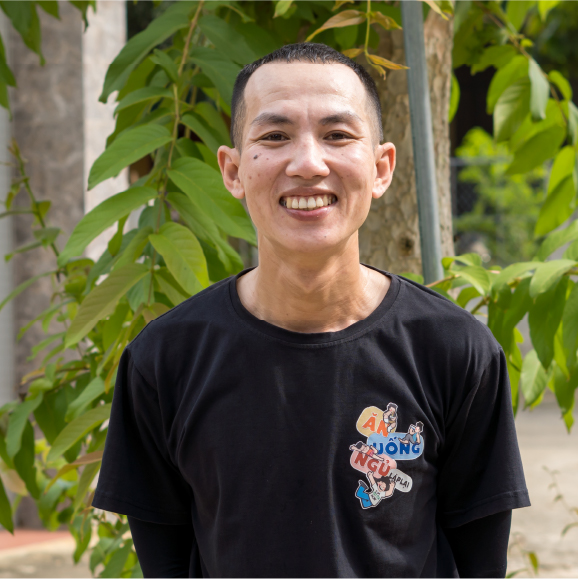
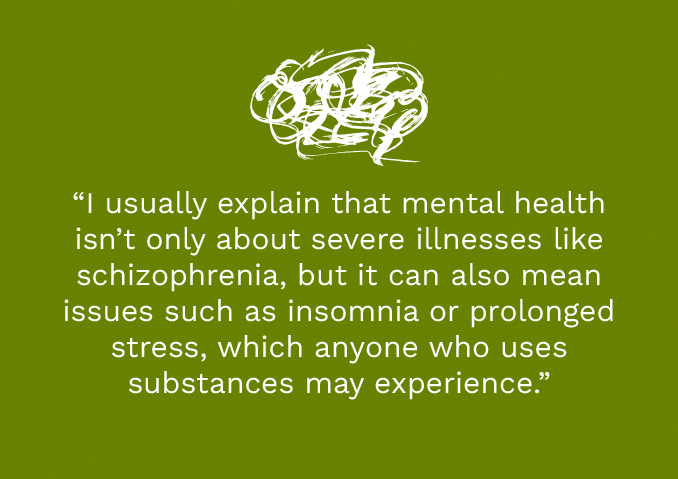
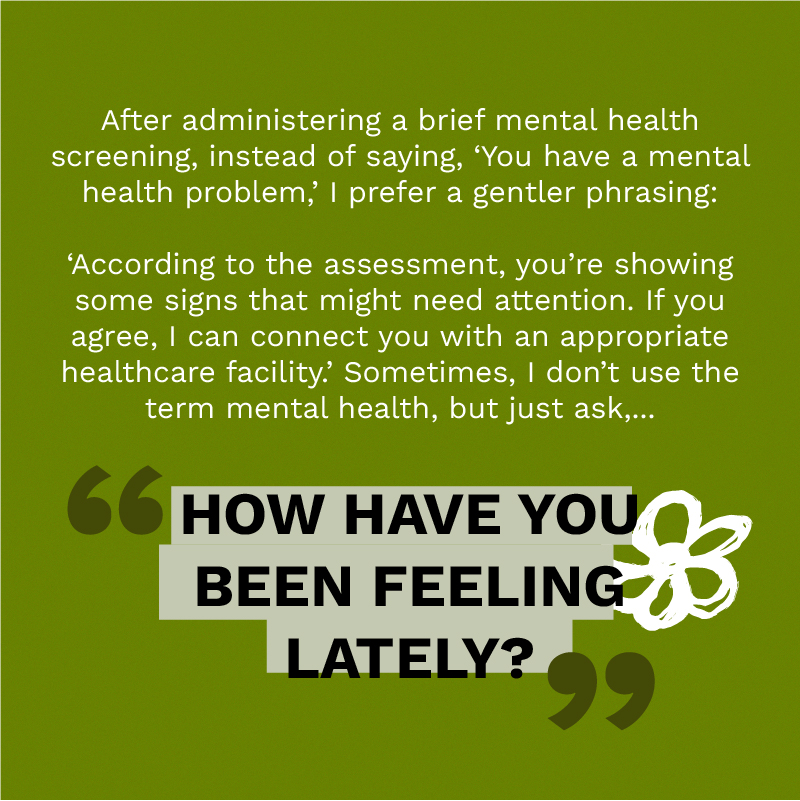
“For clients who are a little more “stubborn”, I will shift the focus to other topics or interventions such as HIV prevention or Eat – Drink – Sleep repeatedly, thereby gradually sparking their interest. Sometimes, some practical suggestions such as meditation and deep breathing are enough to help reduce anxiety and nervousness.”
Encouraging words often come up in counseling sessions, such as: ‘There are many people like you. They listened to the advice, tried some techniques, and now they feel more at ease, with better mental health.’ Though simple, these words carry convincing weight because they come from people in the community, people who have experienced it, understand it, and continue to stand by others.
Trust sometimes takes root in the simplest of things, such as returning for a scheduled counseling session and agreeing to sit down, talk, and share about what they have experienced. It is those small moments that sow the seeds of recovery. And along that journey, community outreach workers continue to walk alongside clients, providing steady and reliable support at each subsequent intervention step.
Encouraging words often come up in counseling sessions, such as: ‘There are many people like you. They listened to the advice, tried some techniques, and now they feel more at ease, with better mental health.’ Though simple, these words carry convincing weight because they come from people in the community, people who have experienced it, understand it, and continue to stand by others.
Trust sometimes takes root in the simplest of things, such as returning for a scheduled counseling session and agreeing to sit down, talk, and share about what they have experienced. It is those small moments that sow the seeds of recovery. And along that journey, community outreach workers continue to walk alongside clients, providing steady and reliable support at each subsequent intervention step.
Continuing efforts
In Building Up, the connection between the community and the health system has been strengthened, offering clients more comprehensive and specialized support. This also marks a milestone in the growth of the outreach team, as they not only walk alongside the community but also serve as a vital bridge to doctors and healthcare facilities.
For many young people, when they hear the suggestion to go to the doctor, the first question is often “Am I going to be diagnosed with a mental illness?”. This hesitation makes connecting clients to medical facilities a big challenge, even for those who have had time to talk about mental health in groups. At that time, the outreach worker continues to play the role of a companion, explaining and encouraging the client throughout the process: reminding them of the follow-up appointment, administering the correct dose of medication, and closely monitoring adherence throughout the treatment period to ensure client compliance.
Some clients worry about running into acquaintances or having their information disclosed, so outreach workers look for flexible solutions to support them.
For many young people, when they hear the suggestion to go to the doctor, the first question is often “Am I going to be diagnosed with a mental illness?”. This hesitation makes connecting clients to medical facilities a big challenge, even for those who have had time to talk about mental health in groups. At that time, the outreach worker continues to play the role of a companion, explaining and encouraging the client throughout the process: reminding them of the follow-up appointment, administering the correct dose of medication, and closely monitoring adherence throughout the treatment period to ensure client compliance.
Some clients worry about running into acquaintances or having their information disclosed, so outreach workers look for flexible solutions to support them.
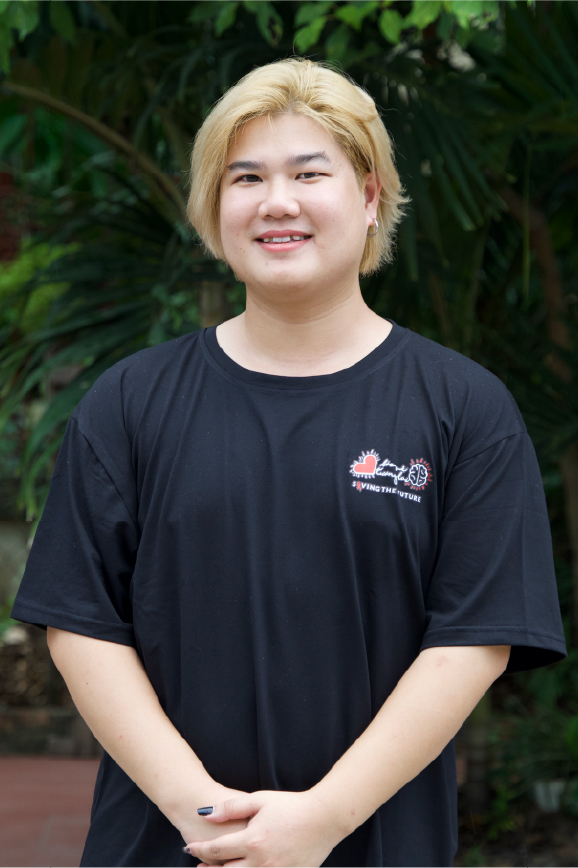
“I contacted the doctor in advance by phone and scheduled the appointment for late in the day or on the weekend, when the clinic was less crowded. Fortunately, the doctor was very open and supportive, which made the client feel much more secure and helped them agree to go for the check-up.”
Nguyen Hoang Linh, an outreach worker in Ninh Binh.
Nguyen Hoang Linh, an outreach worker in Ninh Binh.
The cooperation with psychiatric hospitals in the project areas, especially the open-minded team of doctors/medical staff, has motivated the implementation team. The doctors not only examined and completed their tasks, but also proactively communicated directly with the outreach workers: “This client needs to stay on regular medication,” or “This client should be monitored further before starting treatment,” so that the outreach workers know how to encourage and support the clients between visits.
The close coordination between the community and the medical team has opened a new door, where the recovery process extends beyond treatment to also include understanding from many sides, providing clients with comprehensive support.
The close coordination between the community and the medical team has opened a new door, where the recovery process extends beyond treatment to also include understanding from many sides, providing clients with comprehensive support.
From Saving the Future to Building Up
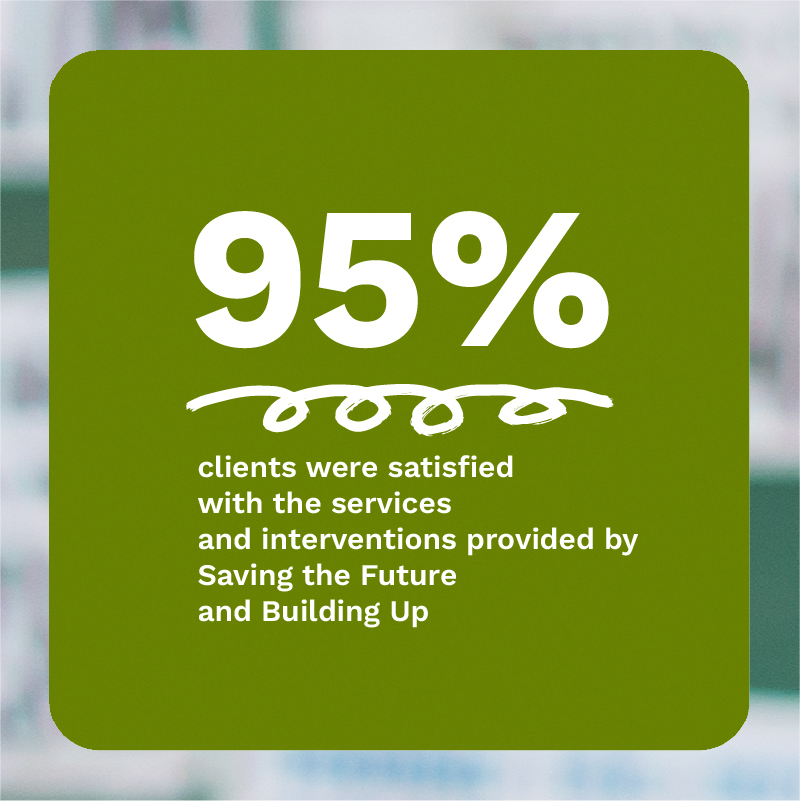
From Saving the Future to Building Up is a journey of steadfast continuation, marked by a strong commitment to supporting the community despite many challenges and hardships. Survey results at the end of the project showed that more than 95% of clients were satisfied with the services and interventions provided by the project. This figure not only reflects the quality of expertise but also stands as clear evidence of the power of community-centered interventions.
For outreach workers, the journey with the project is a process of growth. They not only hone their skills but also gain confidence in dealing with sensitive issues such as mental health. What is important is their ability to adapt to new challenges by being willing to learn, update, and adjust their approaches to meet the changing needs of clients and communities.
For outreach workers, the journey with the project is a process of growth. They not only hone their skills but also gain confidence in dealing with sensitive issues such as mental health. What is important is their ability to adapt to new challenges by being willing to learn, update, and adjust their approaches to meet the changing needs of clients and communities.

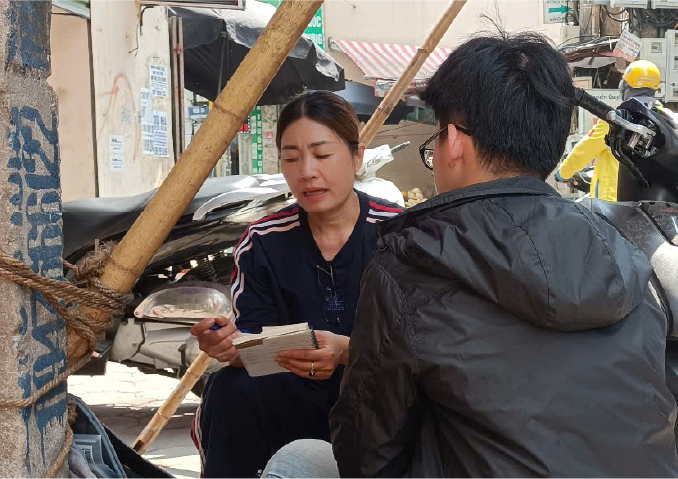
“Through my journey with the project, I’ve learned new skills at every stage. Before, I simply thought of coming to share information, but the more I did, the more I realized that to support clients, I had to learn to listen more deeply to understand what they needed, what interventions were appropriate to share on the right focus, and most importantly, be patient.”
“Seeing change in clients is my greatest motivation, even the smallest changes. At first, they would avoid me, refuse, or even react with anger. But little by little, they began to open up, to trust me, and to try applying the things I instructed. Seeing them change a little bit gives me the motivation to continue, and all the efforts are worth it.”
Outreach workers bring not only the wealth of experience they have gained through years of working with communities, but also their tireless efforts in accompanying, listening, and providing steadfast support. It is this dedication and perseverance that make their contribution unique, helping to foster positive and lasting change.
However, there are still concerns among the outreach workers and within the entire project team.
“The need for mental health care and support in the community is immense. Interventions cannot stop at just a few sessions; they must be sustained over the long term, carried out consistently, and tailored to the specific needs of each community group.”
“I hope that the upcoming interventions will continue to focus on mental health. Because in my area, many clients have never had access to this kind of support, they still live with anxiety and obsessions without knowing how to name them. Many of the project’s interventions have yet to be implemented widely here, so I hope there will be opportunities to continue reaching them.”
Through the continuing journey of Saving the Future – Building Up, the community-based mental health care model has demonstrated its strong potential: delivering support to the right place, to the right people, at the right time, and awakening resilience in each individual.
Without the perseverance, enthusiasm, and companionship of the outreach workers, the “sowers” who quietly plant each seed of hope, this journey could not have come this far. And only when those seeds are nurtured can we, together, cultivate more green shoots for the future, where physical and mental health are fully cared for, and the recovery journey continues in a sustainable way.
“Seeing change in clients is my greatest motivation, even the smallest changes. At first, they would avoid me, refuse, or even react with anger. But little by little, they began to open up, to trust me, and to try applying the things I instructed. Seeing them change a little bit gives me the motivation to continue, and all the efforts are worth it.”
Outreach workers bring not only the wealth of experience they have gained through years of working with communities, but also their tireless efforts in accompanying, listening, and providing steadfast support. It is this dedication and perseverance that make their contribution unique, helping to foster positive and lasting change.
However, there are still concerns among the outreach workers and within the entire project team.
“The need for mental health care and support in the community is immense. Interventions cannot stop at just a few sessions; they must be sustained over the long term, carried out consistently, and tailored to the specific needs of each community group.”
“I hope that the upcoming interventions will continue to focus on mental health. Because in my area, many clients have never had access to this kind of support, they still live with anxiety and obsessions without knowing how to name them. Many of the project’s interventions have yet to be implemented widely here, so I hope there will be opportunities to continue reaching them.”
Through the continuing journey of Saving the Future – Building Up, the community-based mental health care model has demonstrated its strong potential: delivering support to the right place, to the right people, at the right time, and awakening resilience in each individual.
Without the perseverance, enthusiasm, and companionship of the outreach workers, the “sowers” who quietly plant each seed of hope, this journey could not have come this far. And only when those seeds are nurtured can we, together, cultivate more green shoots for the future, where physical and mental health are fully cared for, and the recovery journey continues in a sustainable way.
Content: Anh Cao
Editing: Hùng Nguyễn
Design and illustration: Lê Quỳnh Trang
Photos: Saving the Future - Building up project team
Copyright © 2025, Center for Supporting Community Development Initiatives (SCDI)

